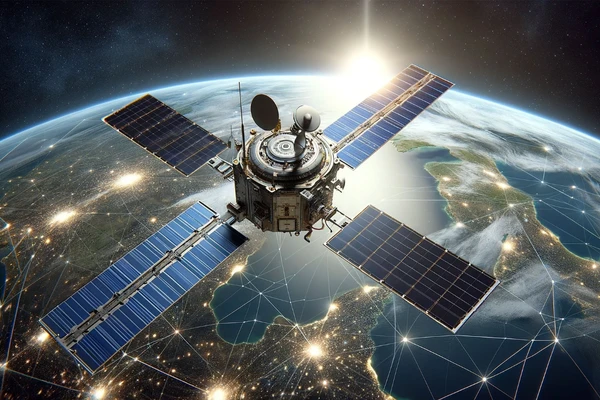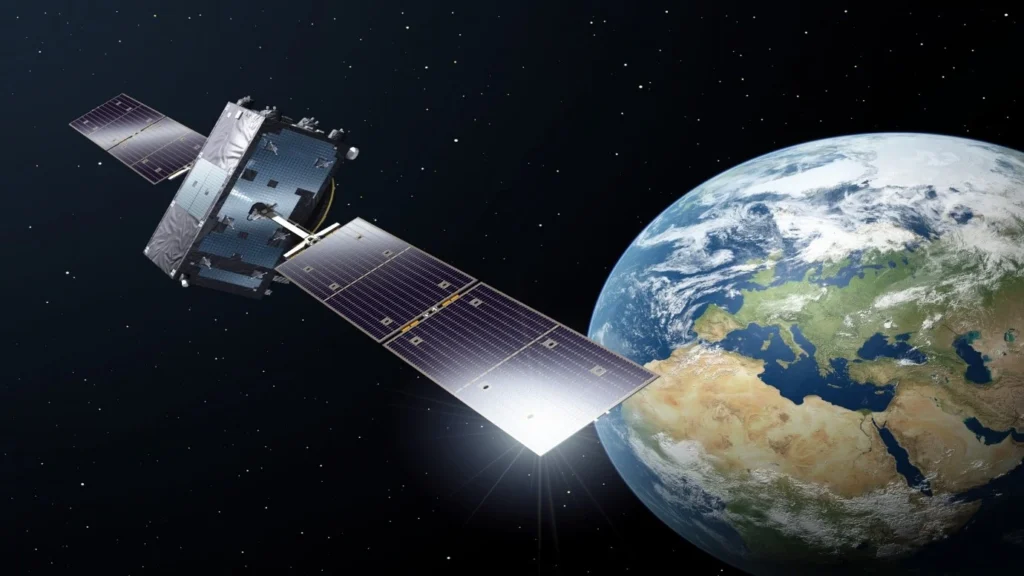A recent report by the World Economic Forum (WEF) and McKinsey & Co projects the global space economy to grow to $1.8 trillion by 2035, highlighting its diverse applications and significant economic potential.
Key Findings:
Ubiquity of Space Technologies:
- Space technologies are increasingly becoming integral to various industries, including food and beverage, retail, transportation, and climate disaster mitigation.
- Reduction in costs and enhanced accessibility are driving the adoption of space technologies, potentially reshaping entire industries akin to the impact of smartphones or cloud computing.
Diversification of Investments:
- The report highlights the growing commercial innovation in space technologies, leading to diversification of investments and applications across different sectors.
- Earth observation satellites and data derived from them are anticipated to revolutionize numerous industries, contributing to economic growth.
Impact on Existing and Emerging Industries:
- Space-enabled technologies have facilitated the emergence of new industries and services, such as telecommunications and ride-hailing apps.
- Over 60% of the projected increase in the space economy will stem from industries reliant on space technologies, including consumer goods, defense, and lifestyle sectors.
Addressing Global Challenges:
- Beyond revenue generation, space-enabled technologies are poised to play a crucial role in tackling global challenges such as climate change.
- Applications like disaster warning systems, climate monitoring, and resource management through Earth observation satellites are highlighted as key contributions to mitigating global issues.
Drivers of Space Economy:
Cost Reduction in Launches:
- Significant reductions in satellite and rocket launch costs have occurred over the past two decades, fostering increased accessibility to space technologies.
- The launch costs of satellites and rockets has fallen 10-fold over the past 20 years.
- The price of data and connectivity is also expected to drop by at least 10% as demand increases by 60% by 2035.
Commercial Innovations:
- Ongoing commercial innovations, such as enhancements in Earth-observation technology, are driving down costs and expanding accessibility to space-based applications.
Growing Investor Interest:
- The burgeoning interest from investors in the space sector is spurring diversification in space-based technologies and activities, including space tourism.
Cultural Awareness and Enthusiasm:
- Rising cultural awareness and enthusiasm for space exploration are fostering interest among future generations, driving continued growth and innovation in the sector.
Key Recommendations:
- Non-space industry leaders should collaborate and invest in technology innovators to leverage their expertise and accelerate advancements.
- Space industry leaders should consider adopting a “space for non-space” strategy, exploring ways to apply their expertise and technologies to non-space sectors.
- Co-create protocols and standards to ensure interoperability and efficiency across industries, facilitating seamless integration of technologies and solutions.
- State-sponsored leaders should enact legislation, standardization, and policies to support the growth of emerging industries and ensure regulatory clarity.
- Foster partnerships across state-sponsored agencies to leverage resources, expertise, and networks, driving collective progress and innovation.
India’s Space economy:
- India’s space economy is valued at around $8.4 billion, which is 2-3% of the global space economy.
- The sector is projected to reach $13 billion by 2025, and $44 billion by 2033, driven by the implementation of the Indian Space Policy 2023.
- The amended Foreign Direct Investment (FDI) policy permits 100% FDI in the space sector.
- The policy’s liberalized entry routes are designed to attract potential investors to invest in Indian companies operating within the space industry.
Recent initiatives to promote space economy:
- Indian Space Policy 2023: Allows non-governmental entities (NGEs) to participate throughout the space industry
- Foreign direct investment policy for space startups: Allows 100% automatic investments in space component manufacturers, and 49% in rockets and space launch service providers
- The Indian National Space Promotion and Authorization Centre (IN-SPACe) was established as an independent nodal agency under the Department of Space.
- New Space India Limited was created to facilitate private sector participation in the space industry.
Ref:Source
| UPSC IAS Preparation Resources | |
| Current Affairs Analysis | Topperspedia |
| GS Shots | Simply Explained |
| Daily Flash Cards | Daily Quiz |



